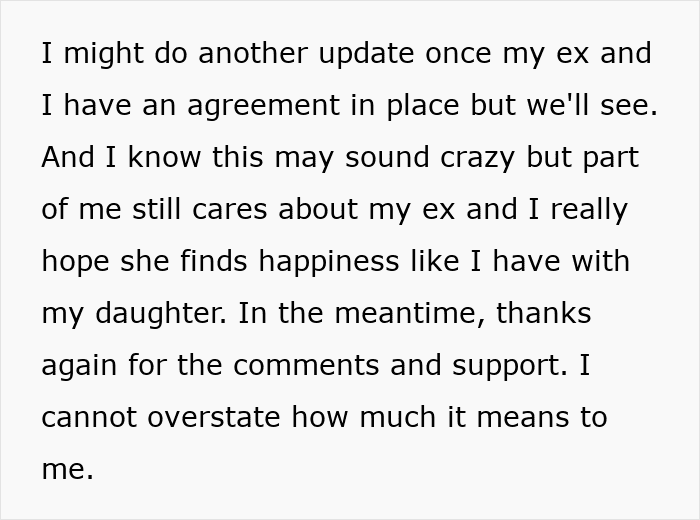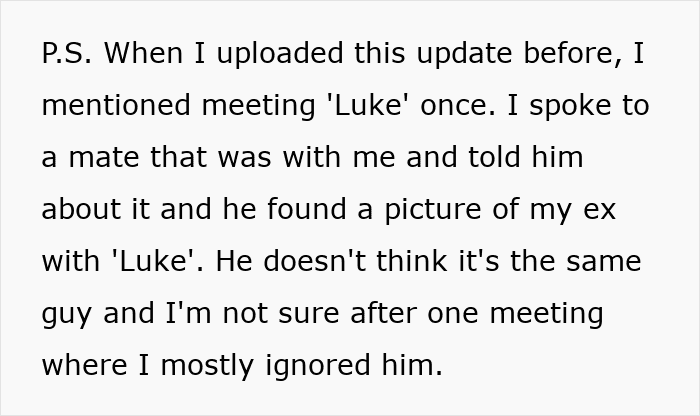Sometimes, life hits you with something you never saw coming.
One moment, this Redditor was building a life with his girlfriend and newborn daughter. The next, she was gone, disappearing without a word and leaving him to raise their child on his own.
Three years later, she unexpectedly returned, asking for forgiveness and a chance to reconnect.
What followed was a string of revelations, emotional conversations, and difficult decisions about whether to let her back into their lives. Read the full story below.
RELATED:One day, the man’s girlfriend disappeared without a trace, leaving him to raise their newborn daughter alone

But three years later, she suddenly returned, asking for forgiveness and hoping to reconnect

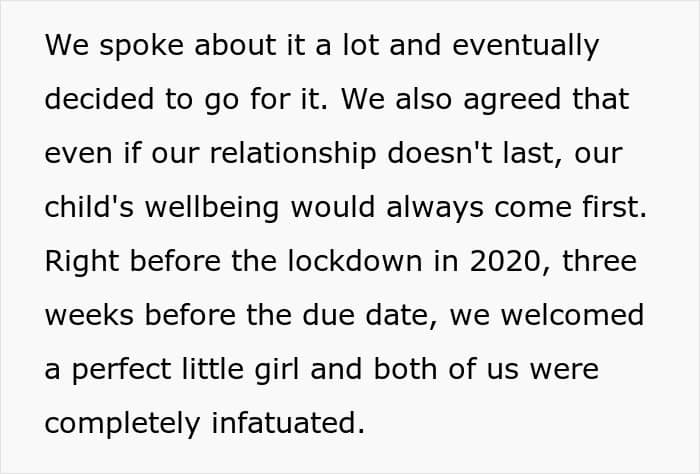
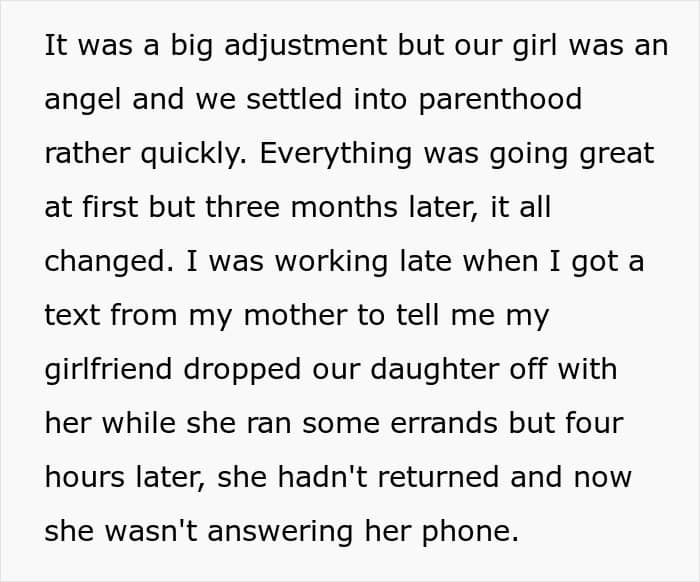
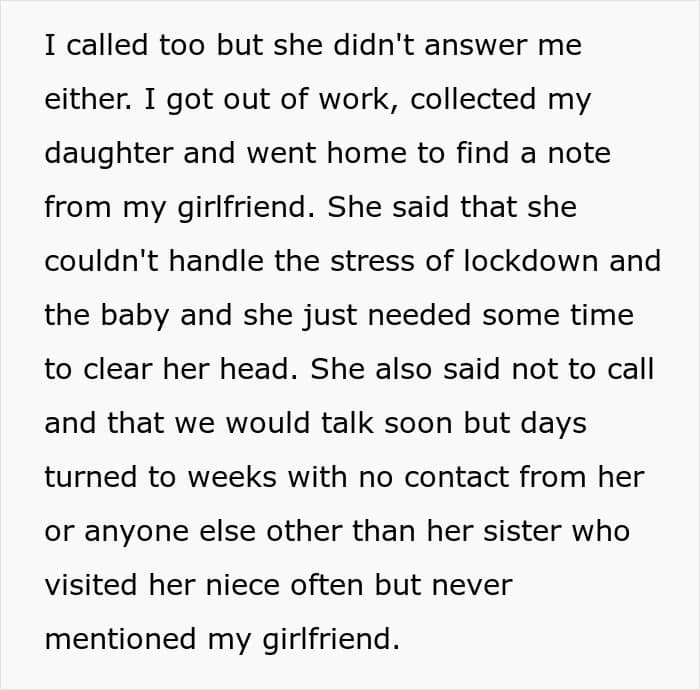

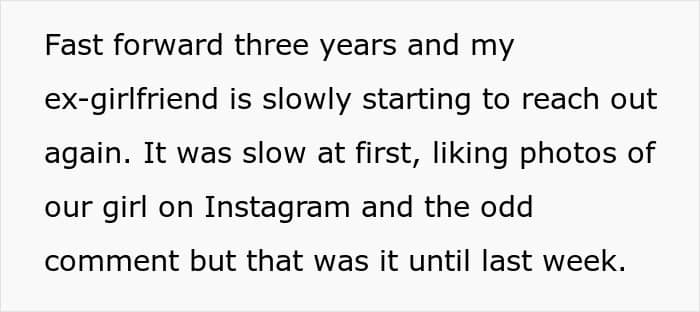
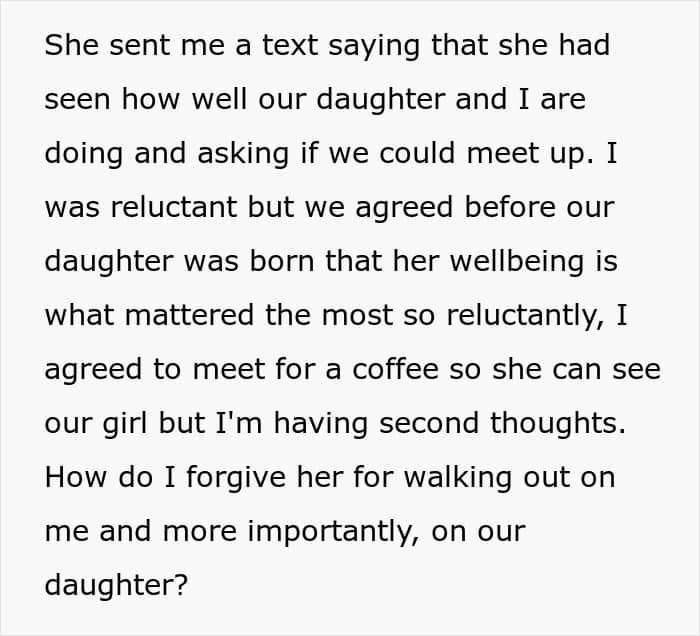
Readers urged him to handle things legally, just to be safe and protect his daughter’s future
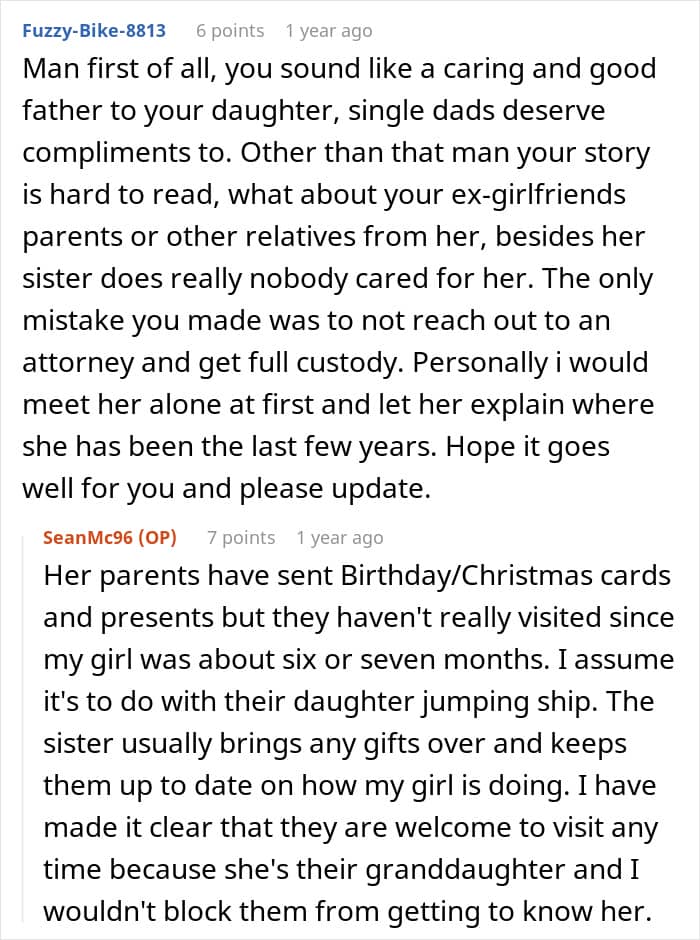

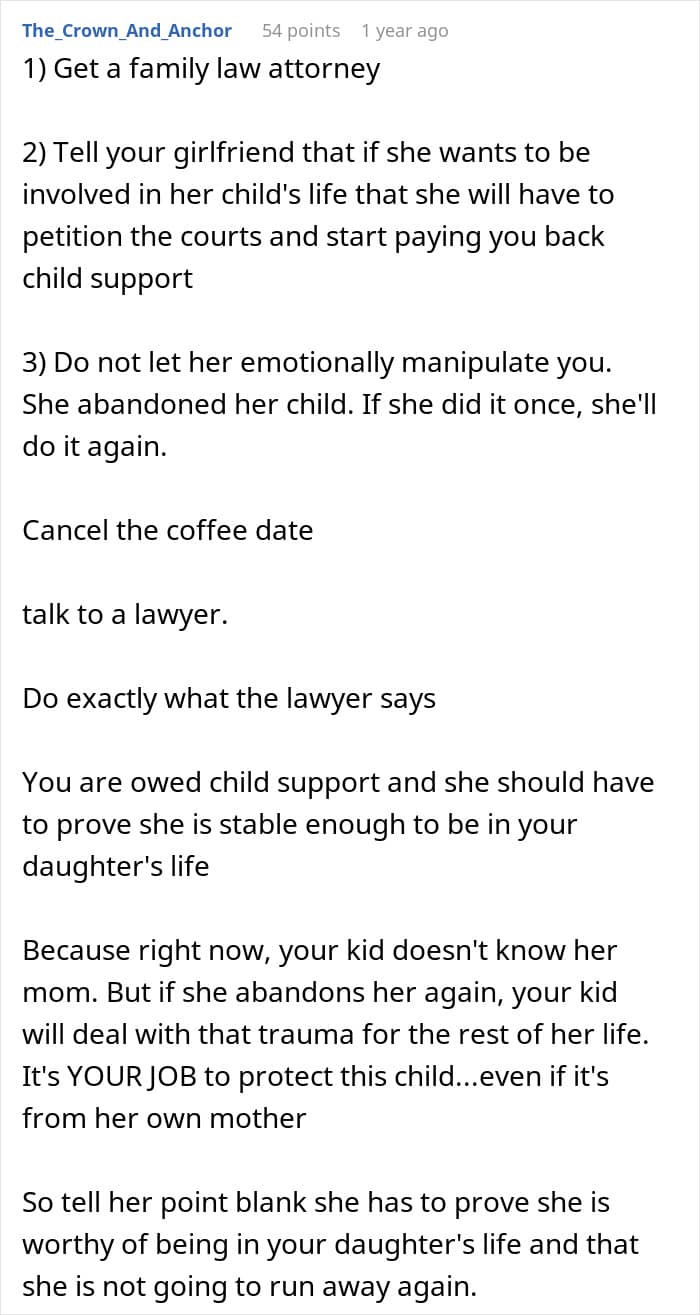
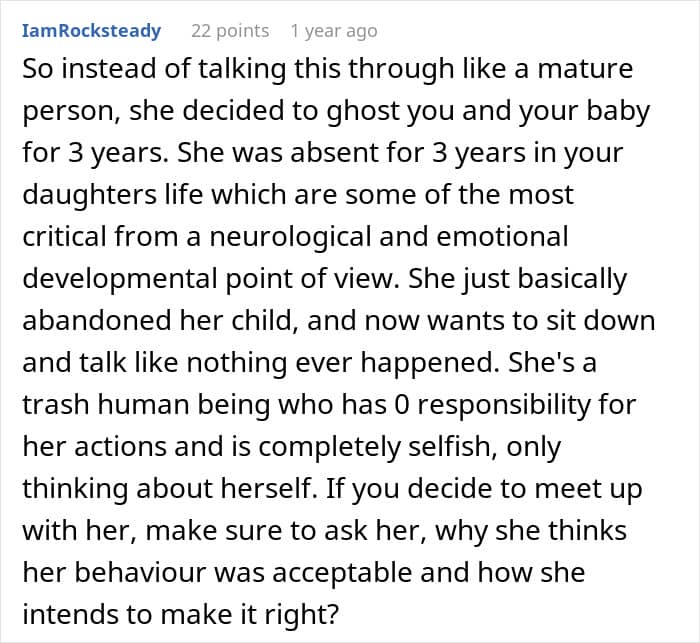
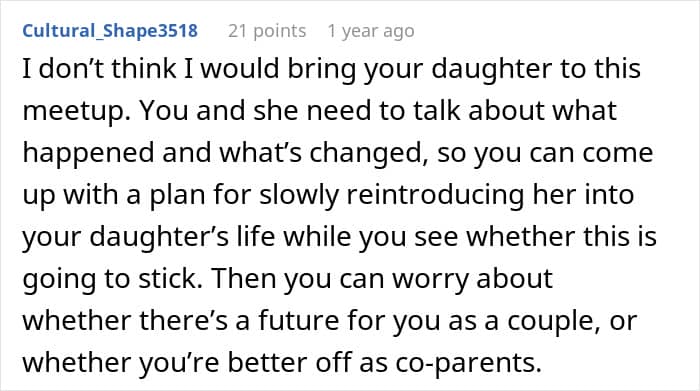
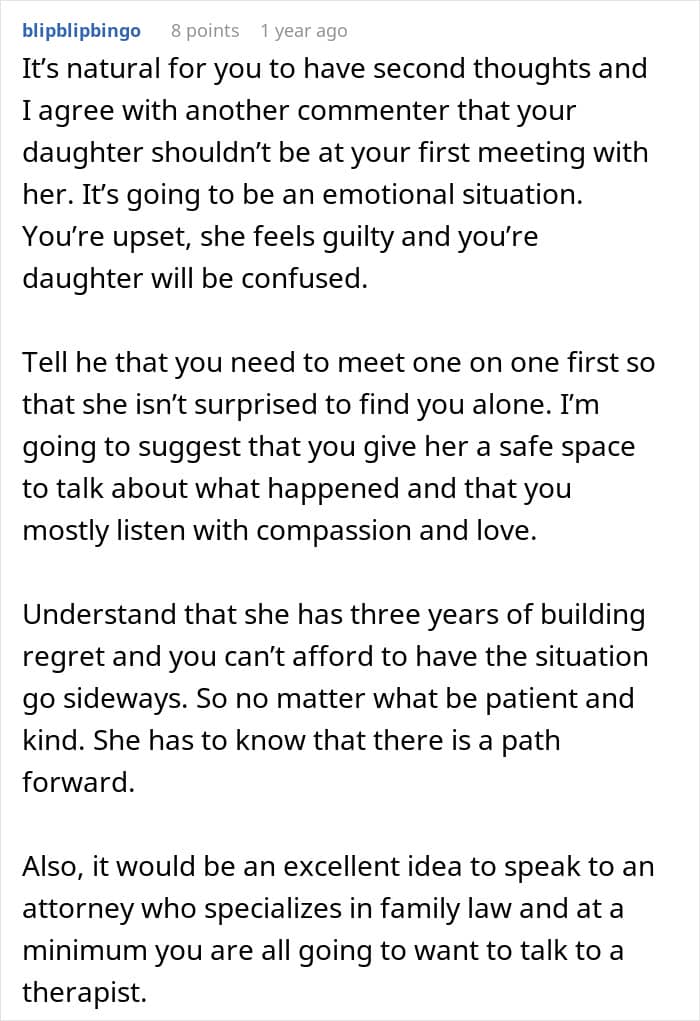
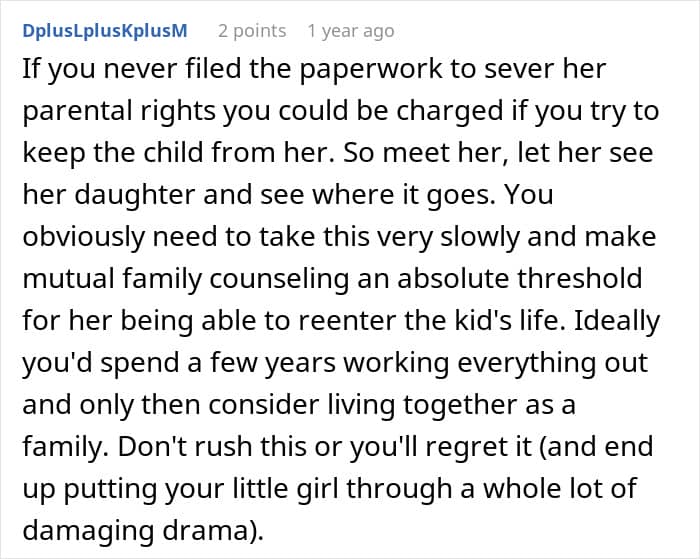
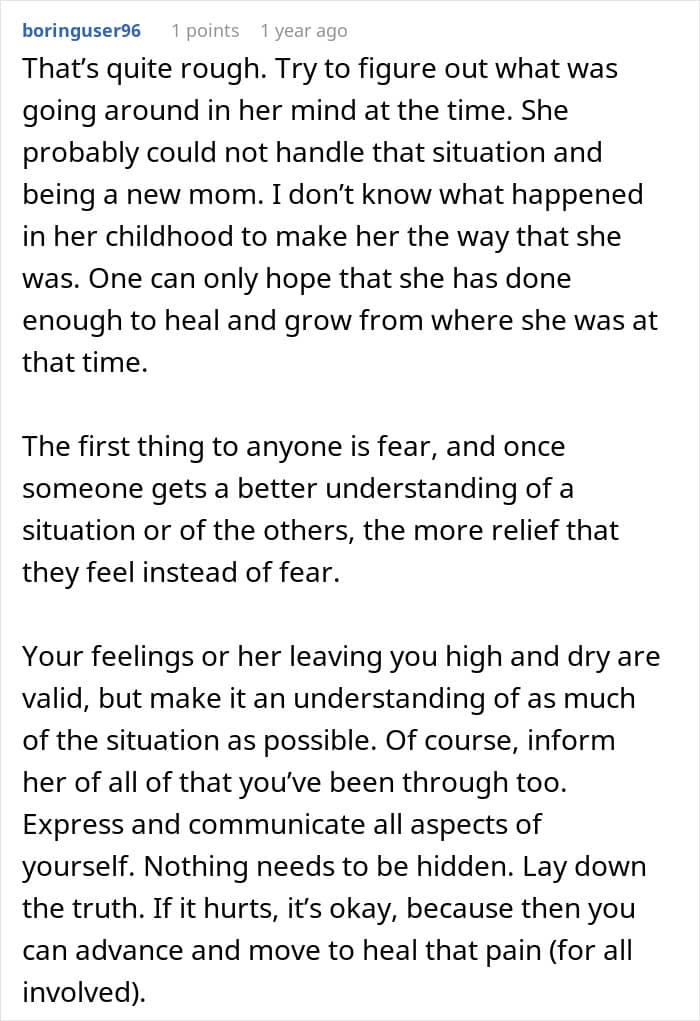


Later, the man revealed that he went to meet her in person
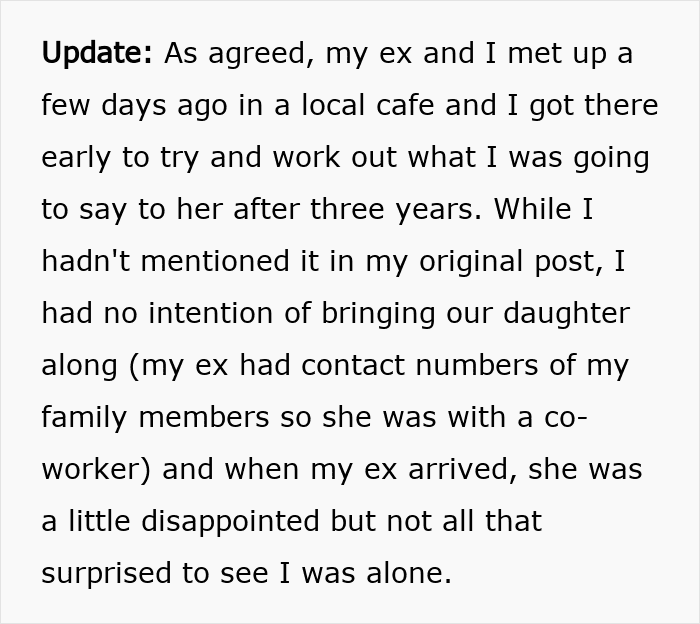
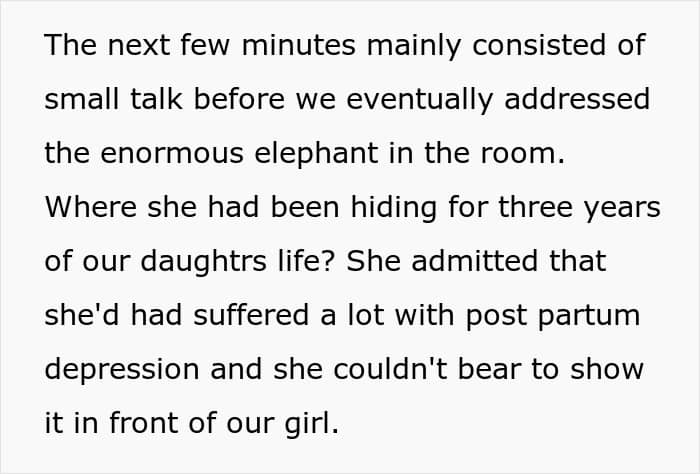
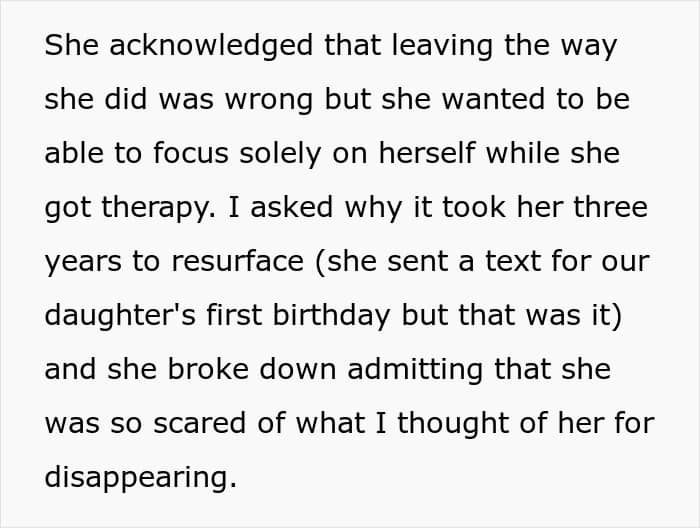
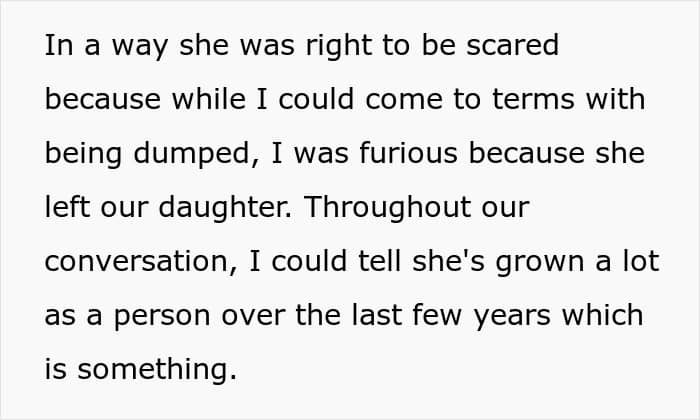

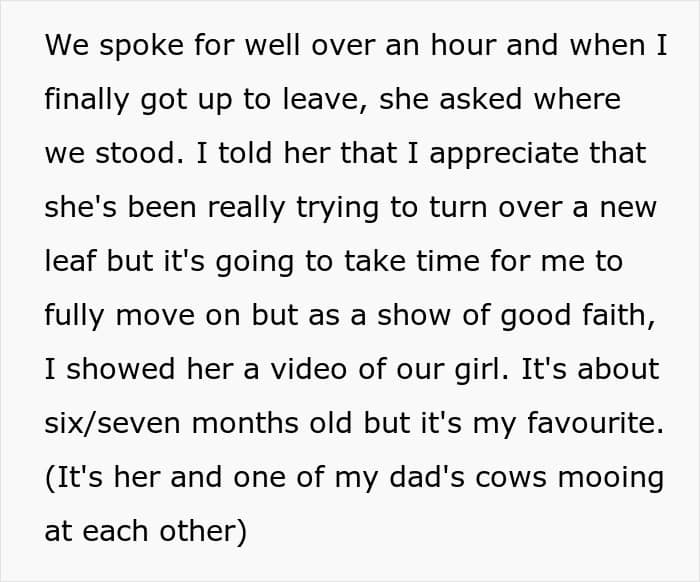
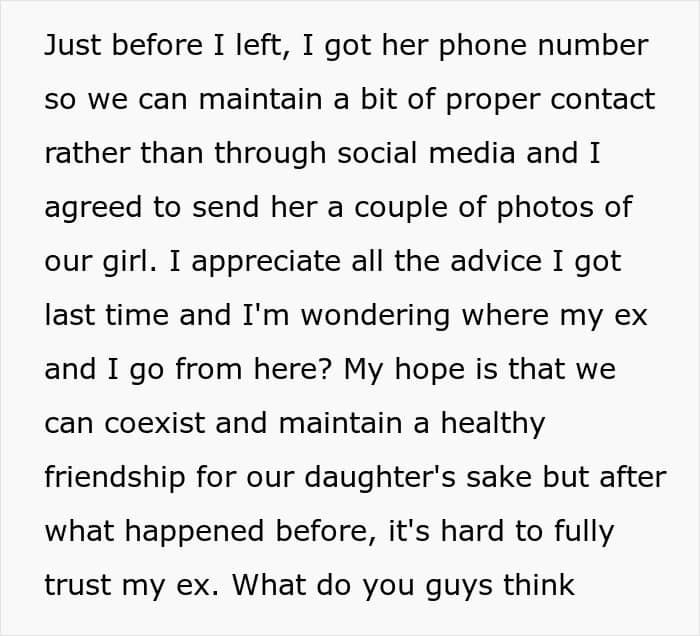

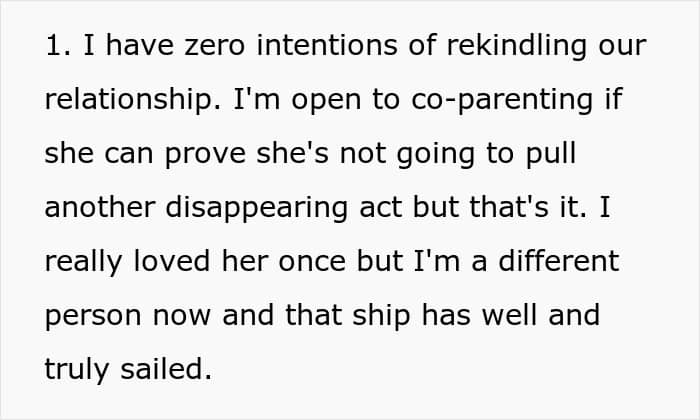
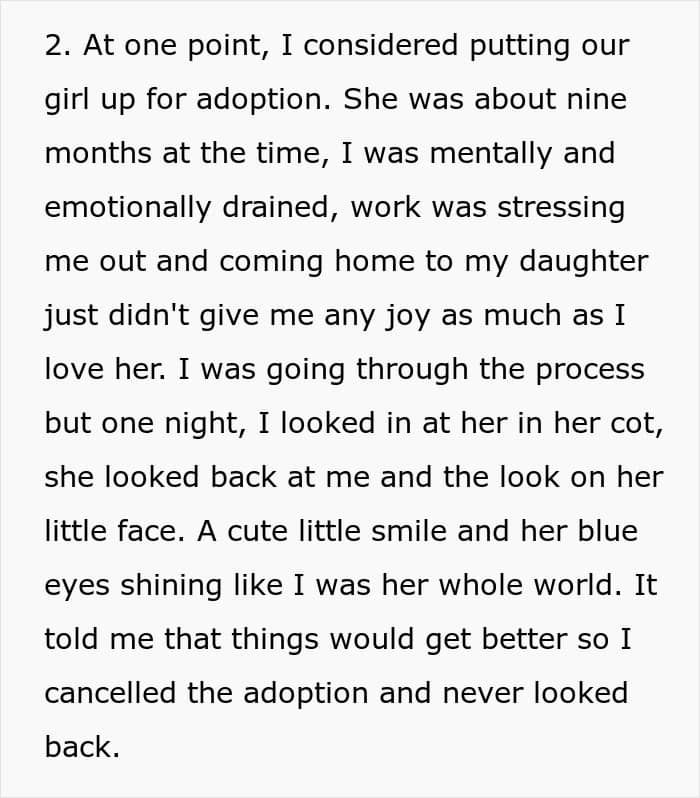
Readers continued to remind him to tread carefully
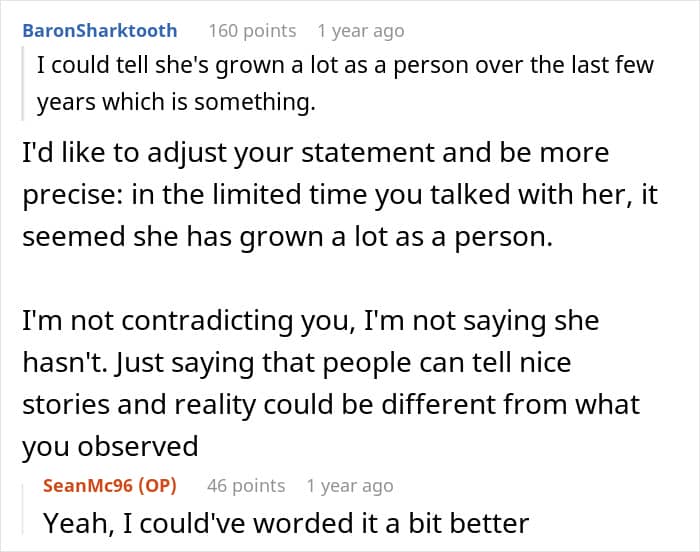

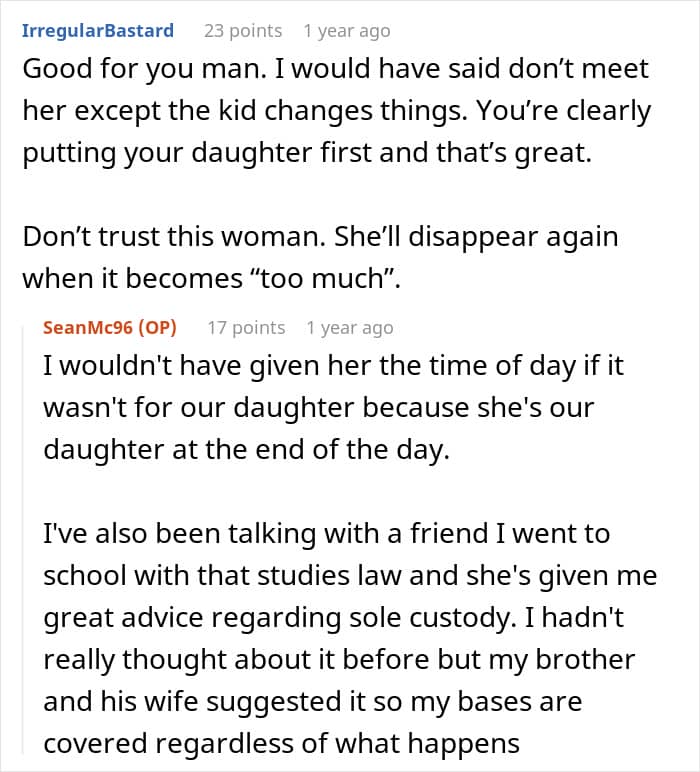
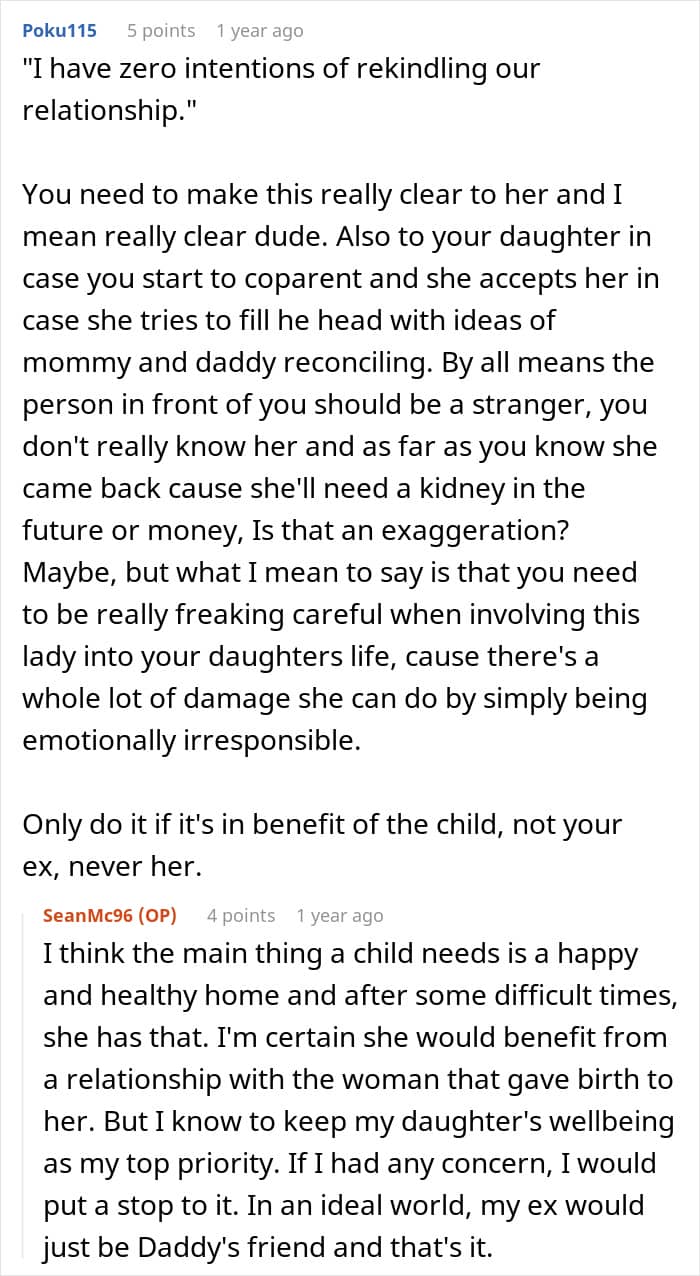
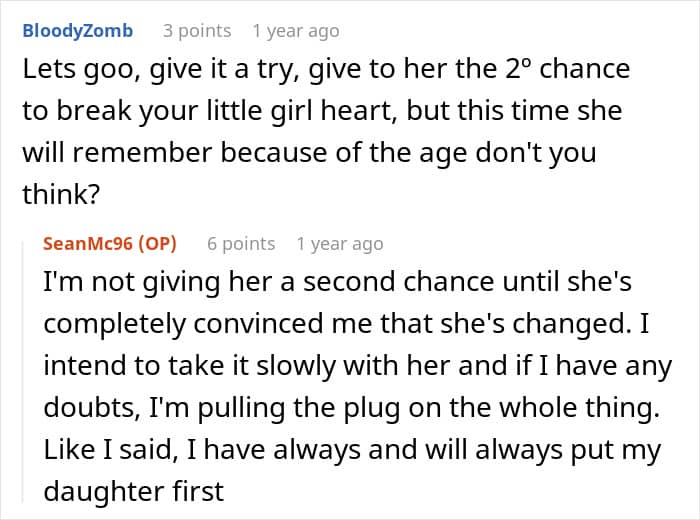
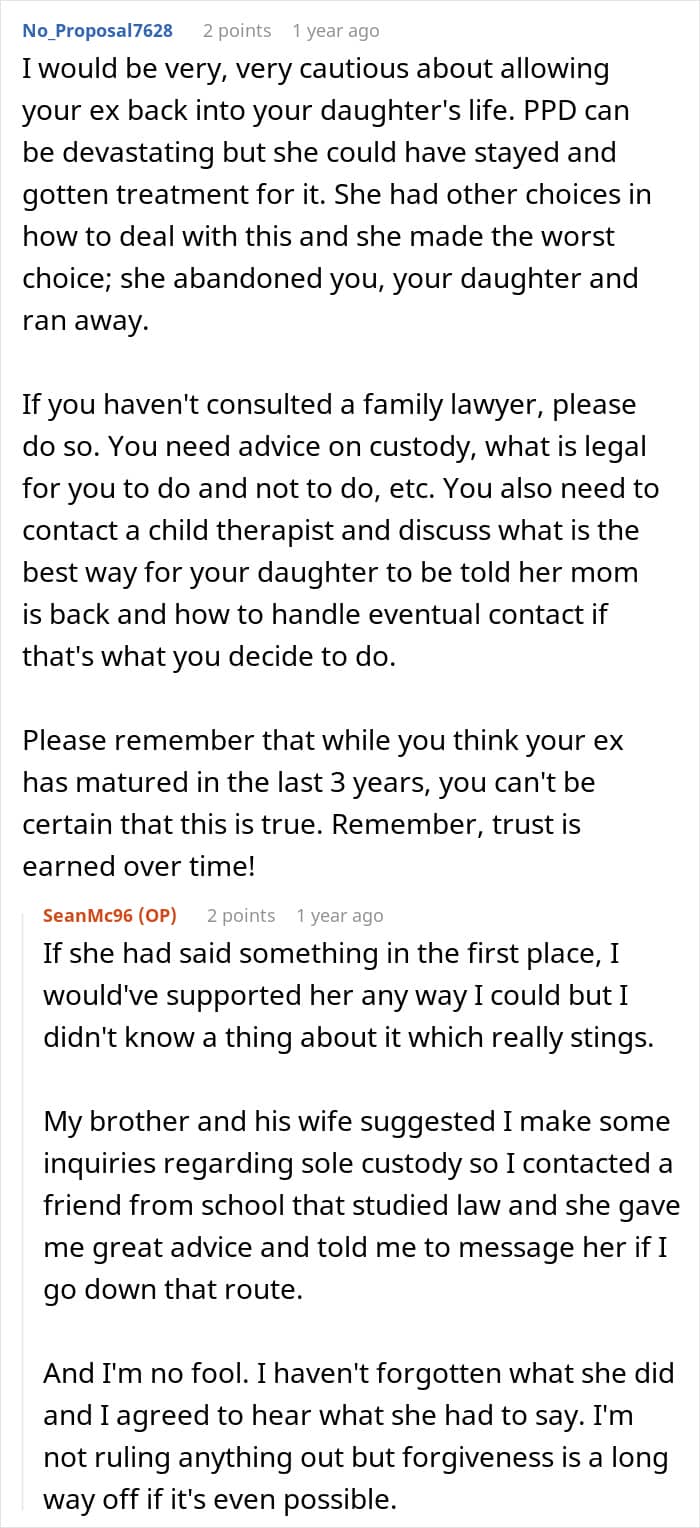
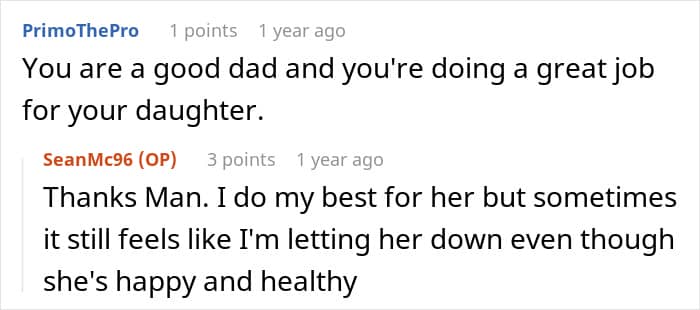
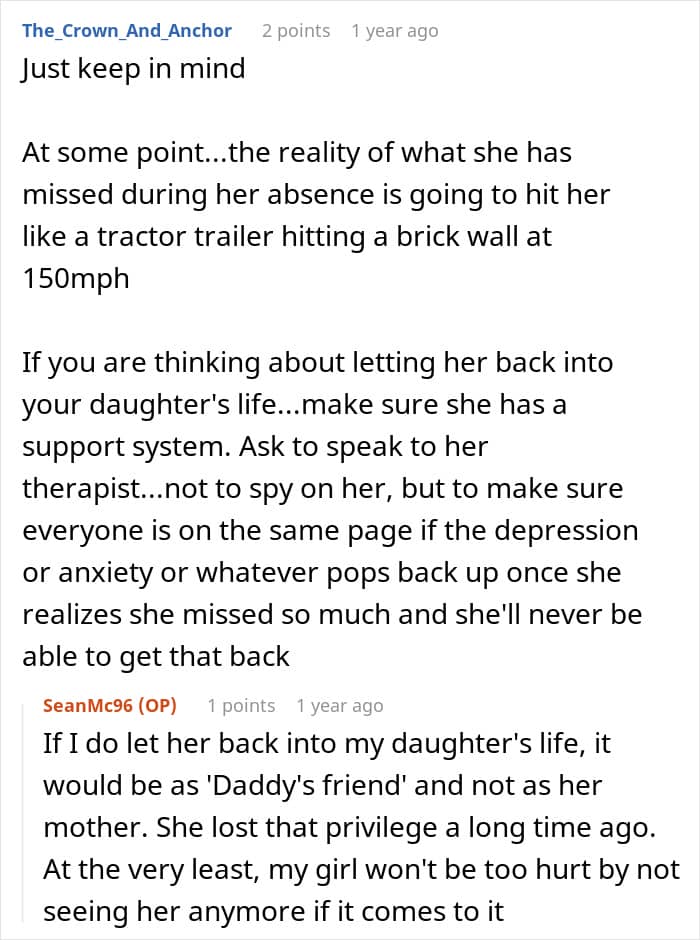
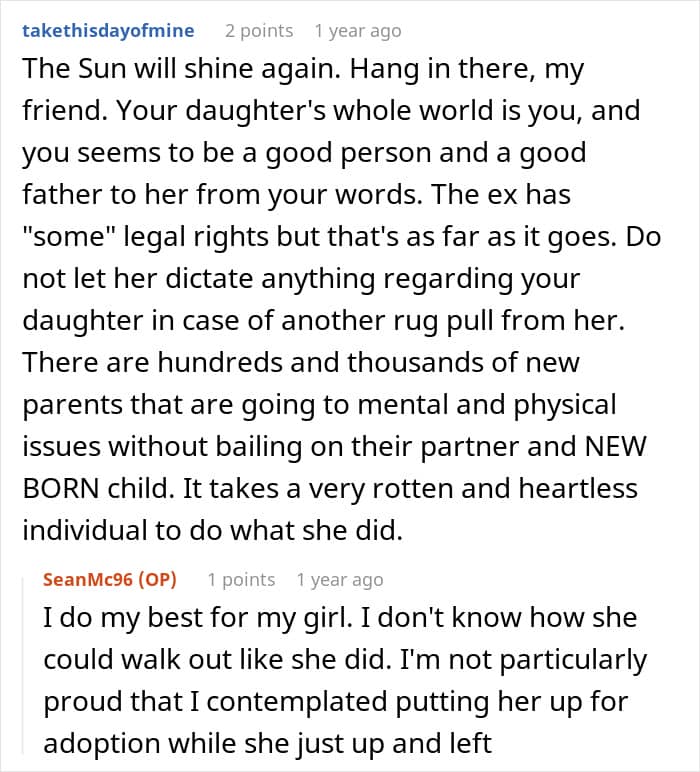
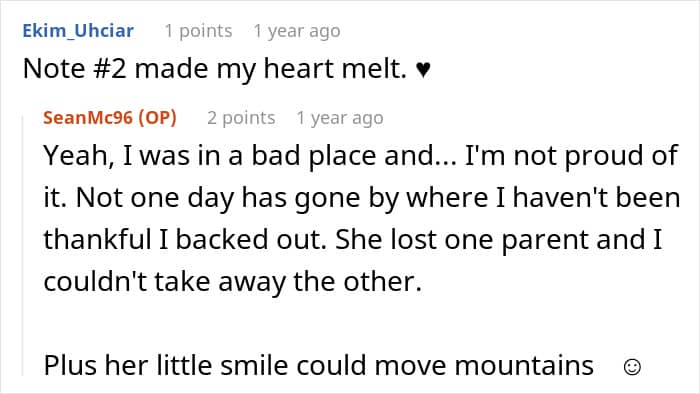
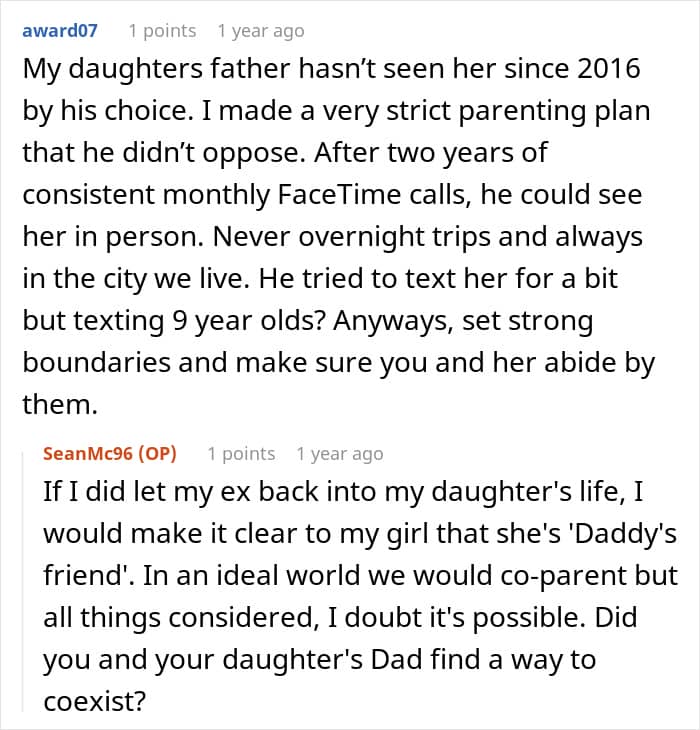
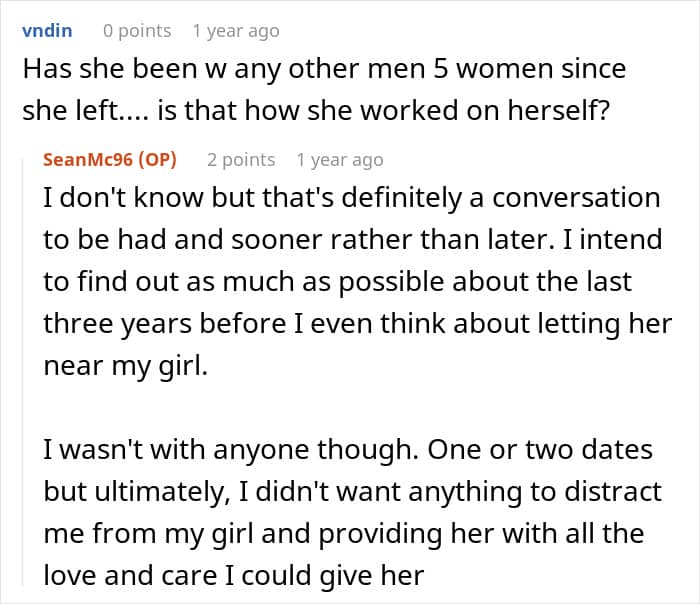

Why women aren’t speaking up about postpartum depression
Hearing a story about a woman abandoning her child is nothing short of heartbreaking. And more often than not, it’s immediately met with harsh judgment.
Which, on the surface, makes sense. You have a child left without their mother—their source of comfort, support, and unconditional love. And in some cases, like this one, the mother disappears without a trace.
But as part of this conversation, we also need to look a bit deeper. What brings a new mother to such a breaking point? What leads her to walk away? While we can’t know the full story behind the mom in this post, we do know that this isn’t an isolated issue. It’s something many women around the world silently face.
Because postpartum depression (PPD) is real and it’s far from rare. It can hit hard and fast, and when left untreated, it can put both mother and child at risk.
PPD affects approximately 1 in 7 new mothers. It’s a form of moderate to severe depression that can begin weeks or even months after giving birth.
Many assume it’s just “baby blues” or fleeting sadness. But in reality, it’s something much more serious.
It can look like feeling disconnected from your child. Like you’re not a good enough mother. It can bring panic attacks, racing thoughts, crushing anxiety, and total emotional numbness. Misery. Detachment. Feeling no joy in your child, your family, or your life. And that’s only scratching the surface.
Sadly, many women are too afraid to speak up and get the help they need. In a survey by HealthyWomen of over 1,000 women aged 18 to 49, who were either pregnant or planning to become pregnant, 91% said they felt pressure to hide the sadness, anxiety, or struggles they experienced around motherhood.
Portia Smith, a motivational speaker and mother of three in Philadelphia, shared her own story of PPD with WHYY: “I would just hold her and cry all day,” she recalled.
At the time, she was 18, caring for both her newborn and another child, all while in an unhealthy relationship. But the situation wasn’t just shaped by those external struggles.
“I really didn’t have a connection for her,” said Smith. “I didn’t even want to breastfeed because I didn’t want that closeness with her.” Despite how she felt, she couldn’t bring herself to ask for help.
“You’re afraid to say it because you think the next step is to take your children away from you,” she said. “You’re young and you’re African American so it’s like, she’s going to be a bad mom.” It’s also worth noting that women of color are more likely to experience PPD and less likely to receive care for it.
That shame, fear, and exhaustion can all rob a woman of the chance to fully experience motherhood. And in some cases, it goes beyond PPD and becomes something even more severe: postpartum psychosis (PPP). This condition is rare but incredibly dangerous, and thankfully, reversible with proper treatment.
Women suffering from PPP can experience hallucinations, delusions, manic episodes, and an increased risk of harming themselves or their children.
Catherine Cho, writing for The Guardian, reported hearing voices that told her “her son needs to die.” Jen Wight told the BBC that she had a range of delusions, believing at one moment she could find a cure for cerebral palsy, and at another that she could control dogs with her mind. Meanwhile, her partner was left to manage most of the child’s care as she became lost in her own thoughts.
So while I’m in no position to diagnose the mother in this story, her actions are a reminder that childbirth can have devastating, unexpected mental health consequences. We don’t know how or if she’ll repair the relationship she left behind, but we can hope she got the help she needed to begin figuring it out.

Eventually, the man agreed to join his ex for one of her therapy sessions
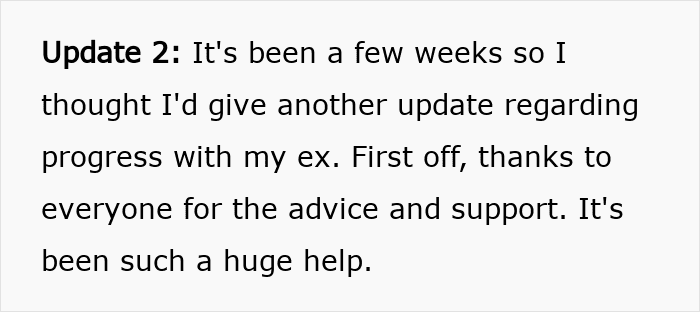
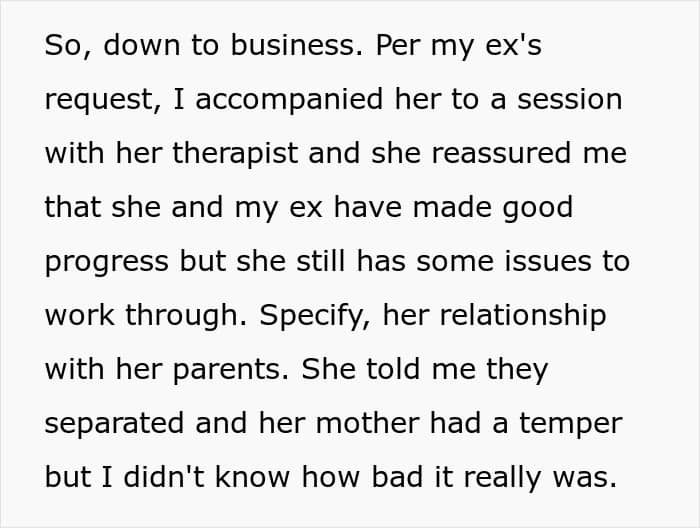
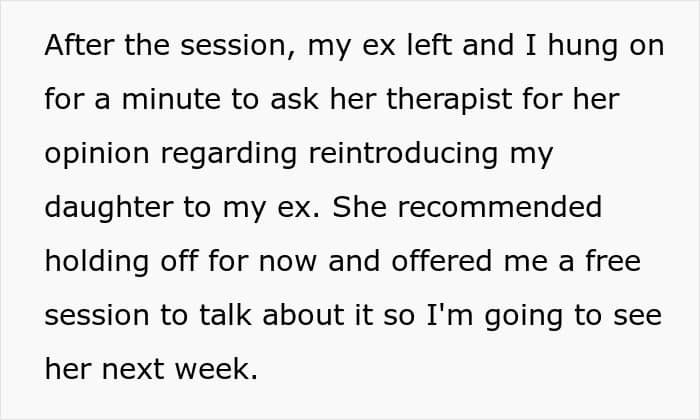
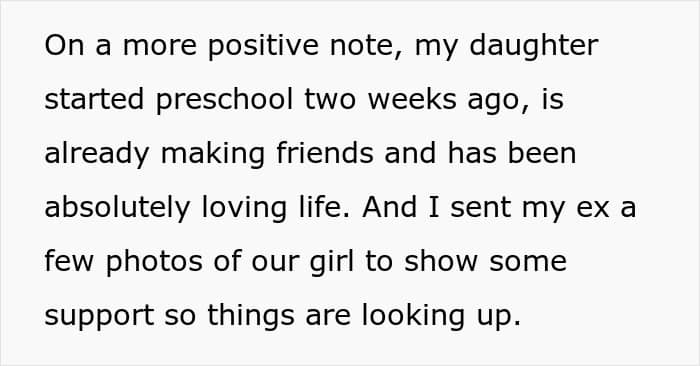
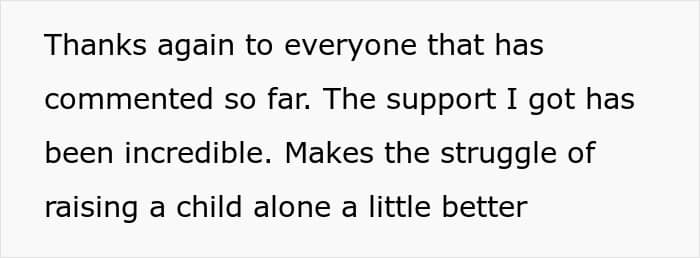
Commenters encouraged him with kind words and support throughout his journey
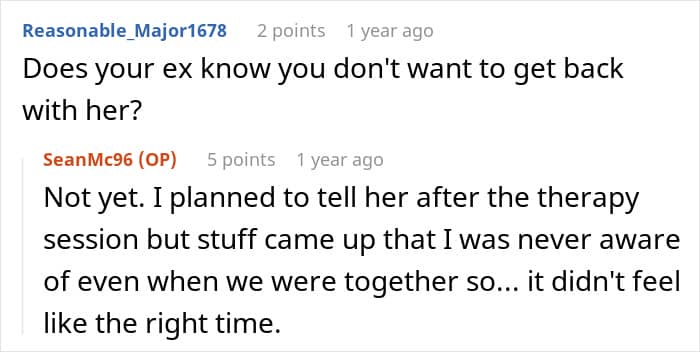

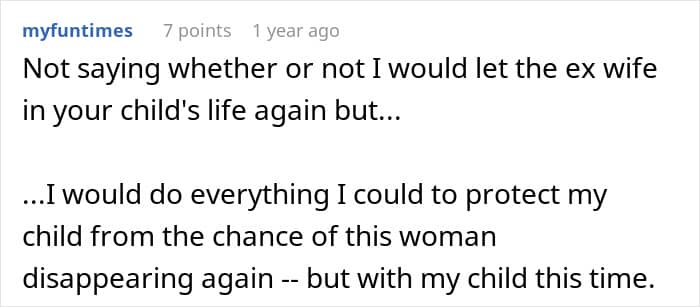


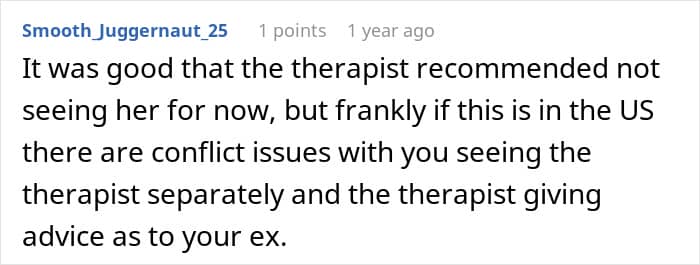

However, things changed after he discovered his ex had been seeing someone else during her time away
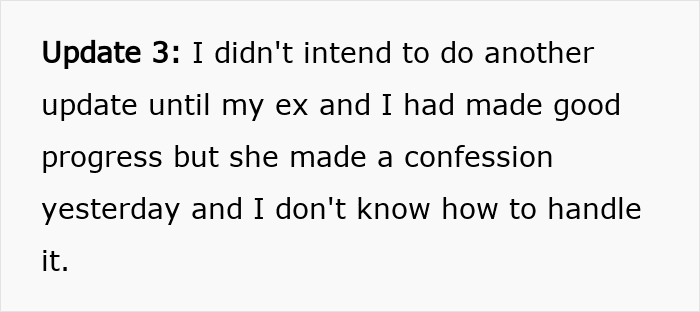
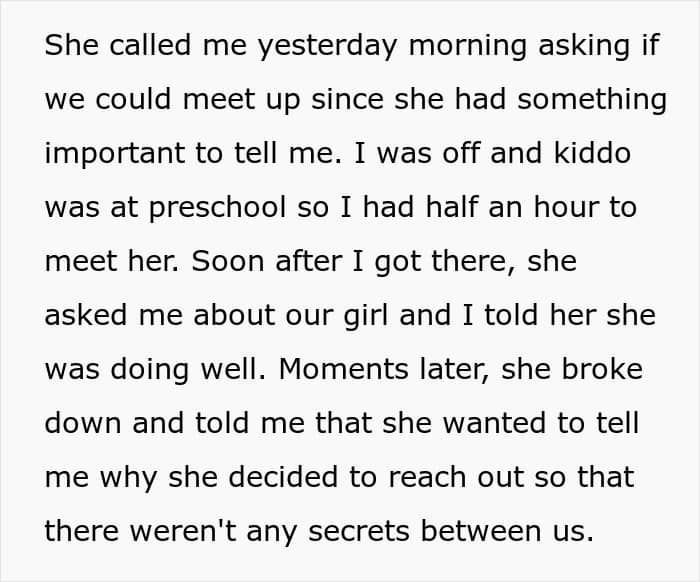
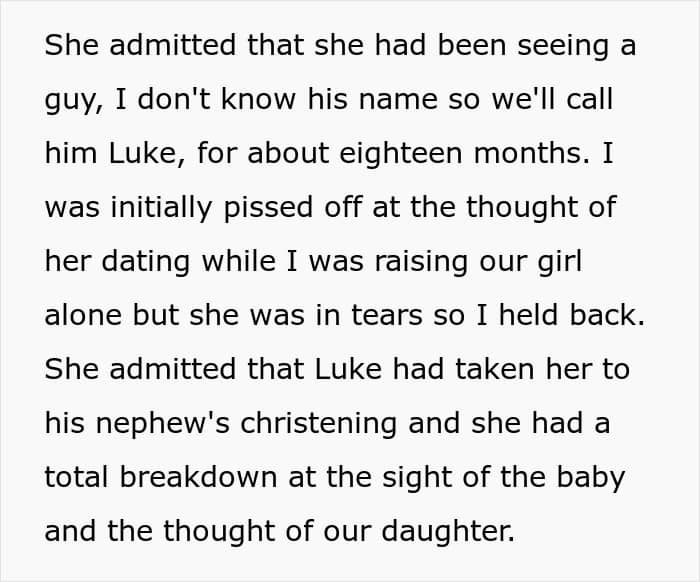
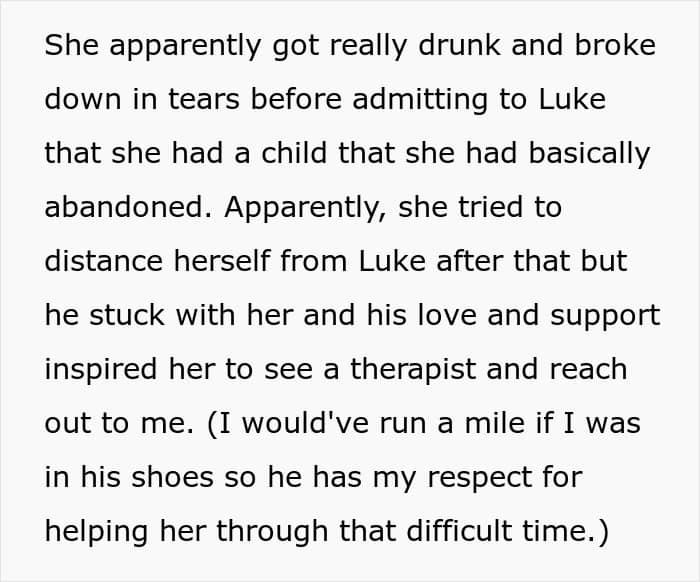

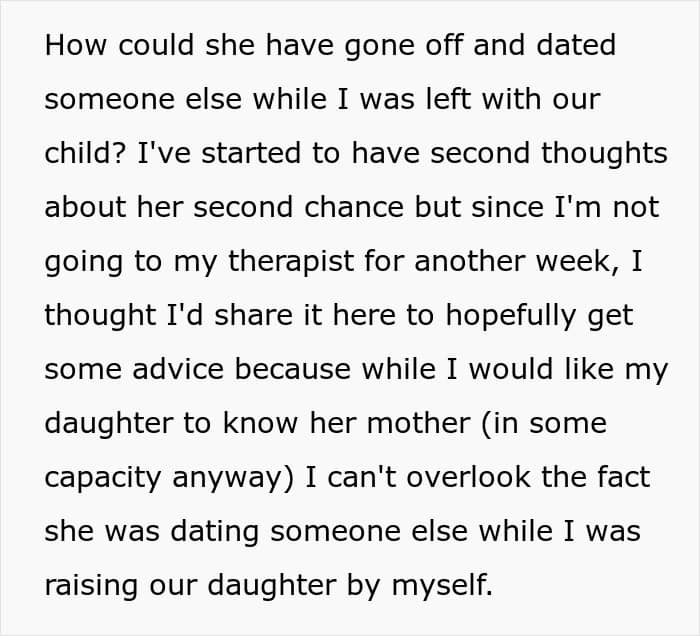
The revelation sparked outrage among readers
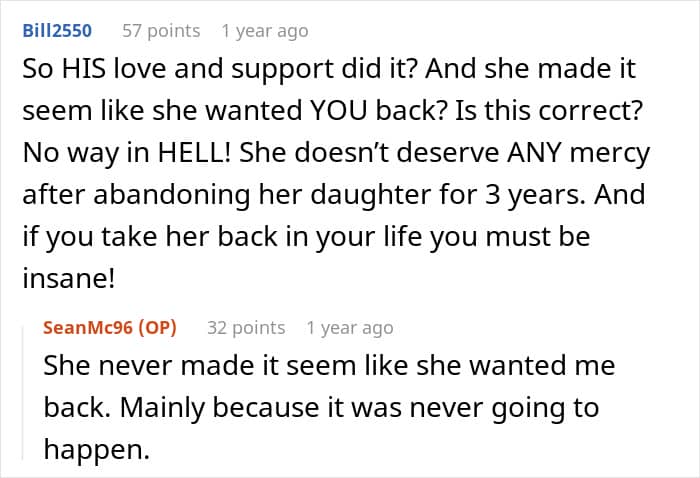
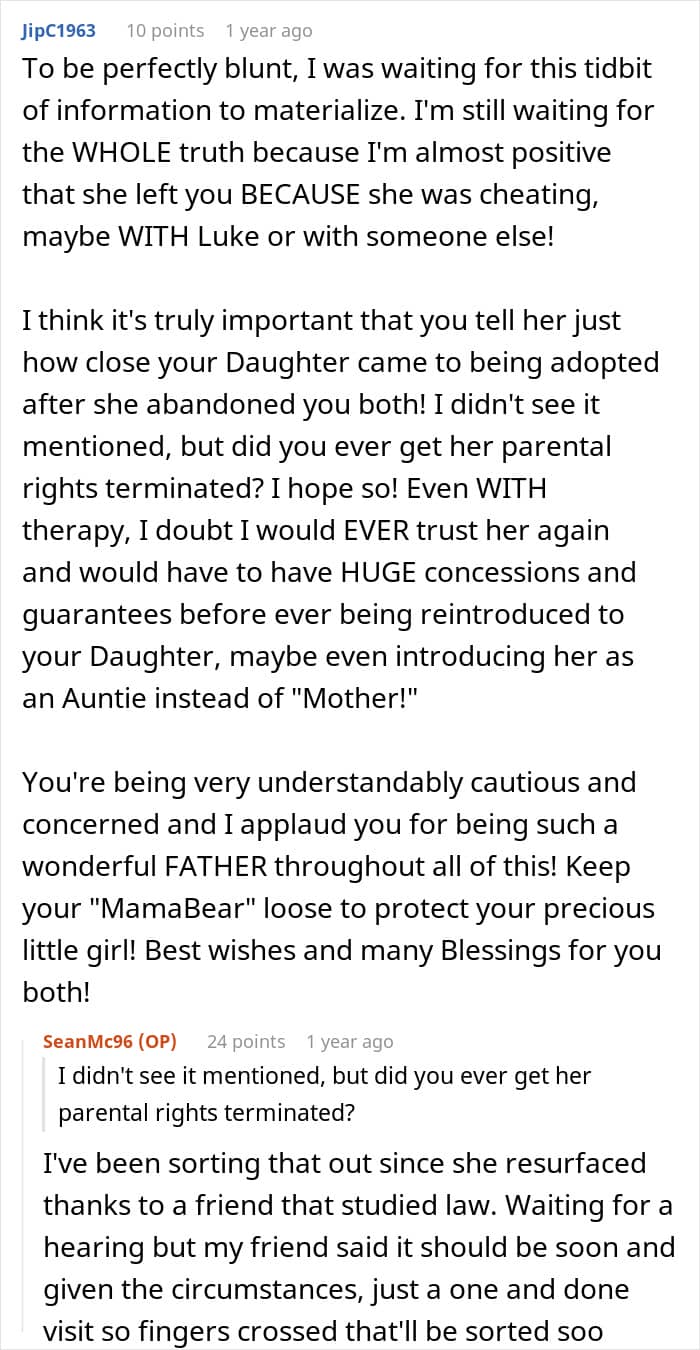
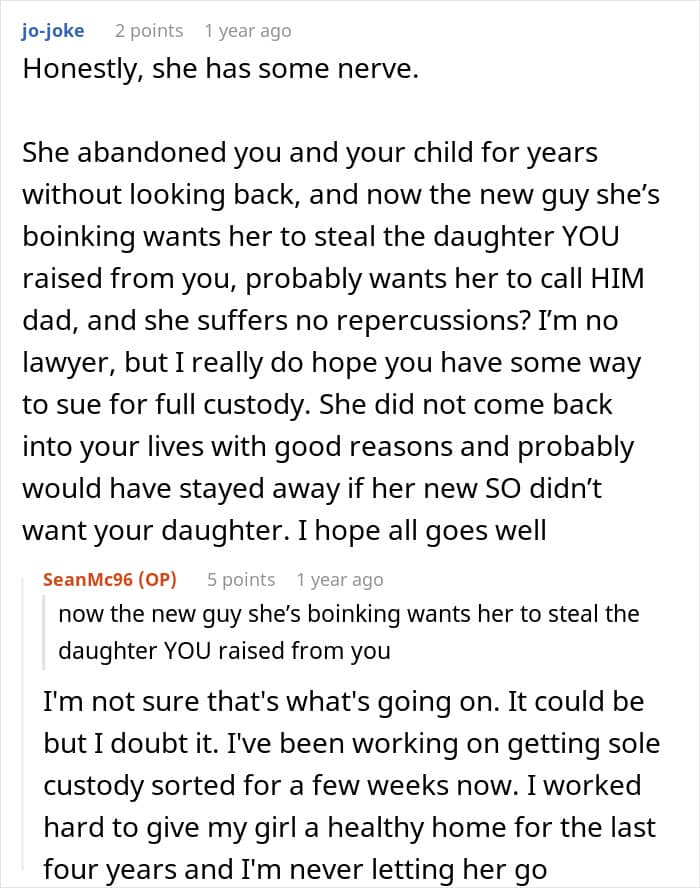
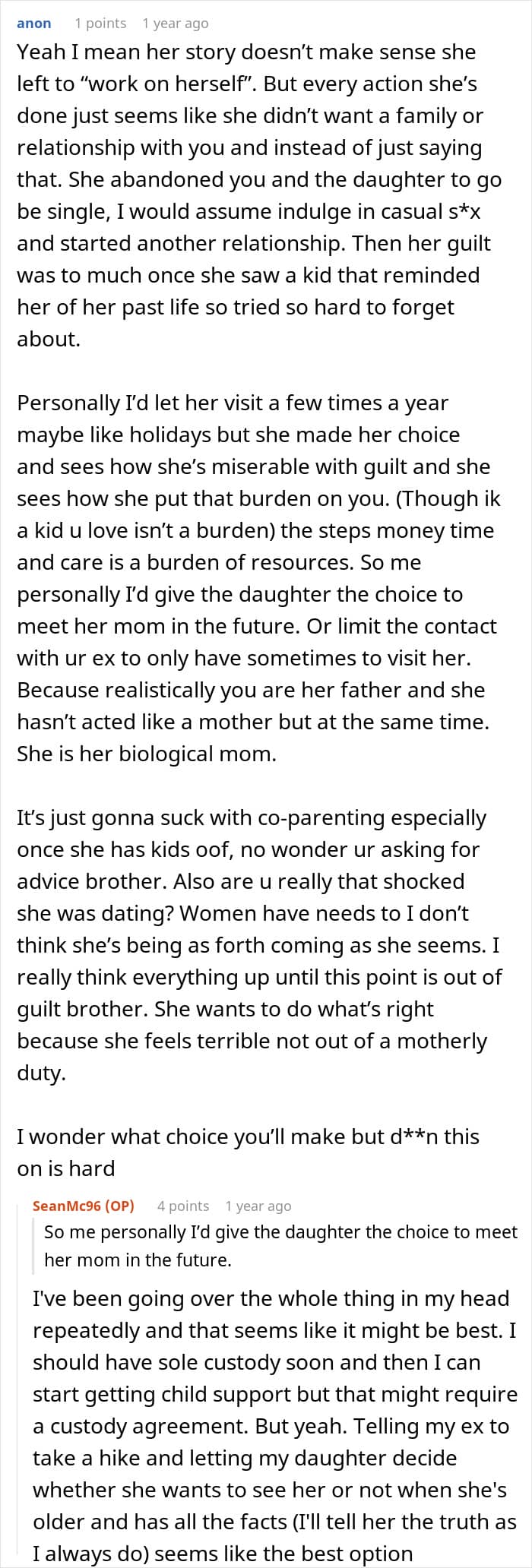

The man spoke with his therapist about it and found some much-needed reassurance
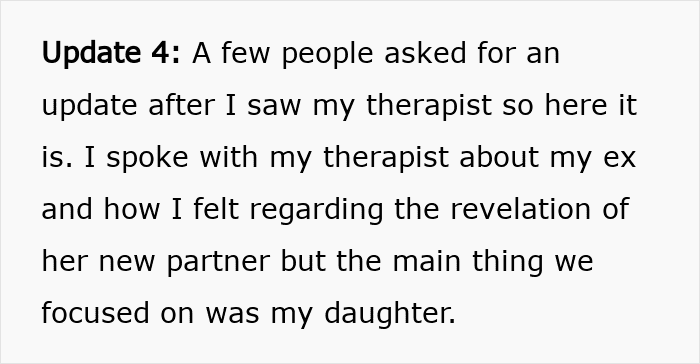
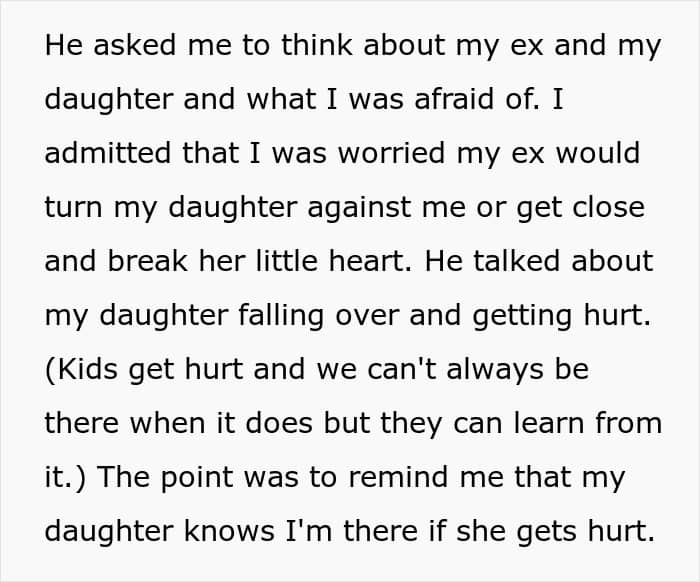
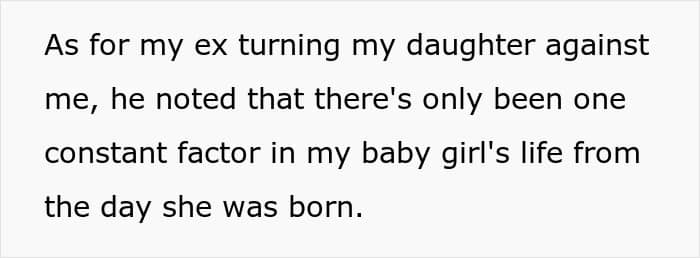
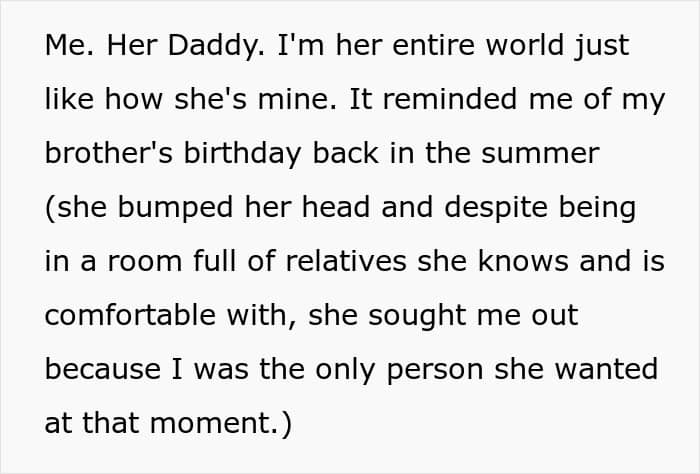
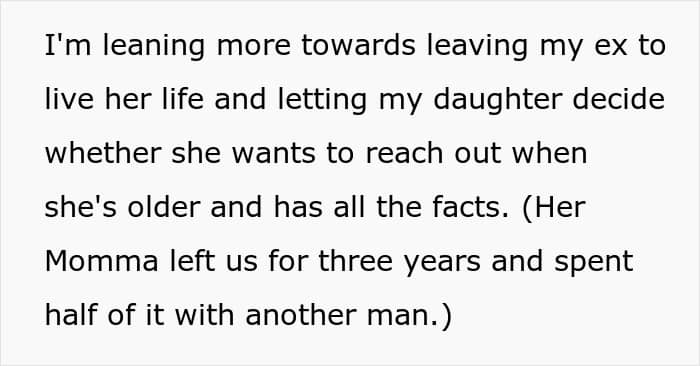
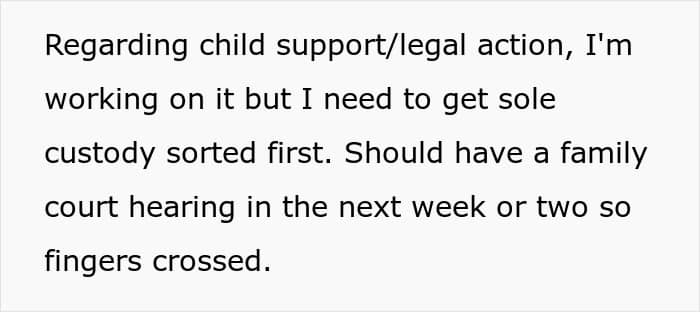
Some commenters said he should trust his gut and do what feels right for him and his daughter
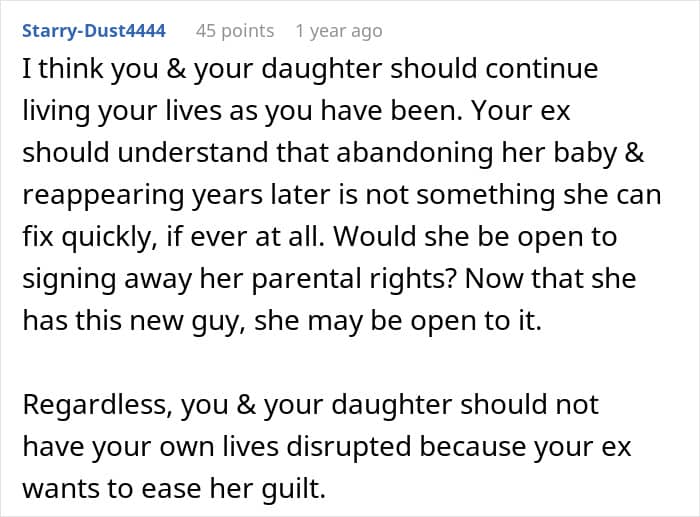
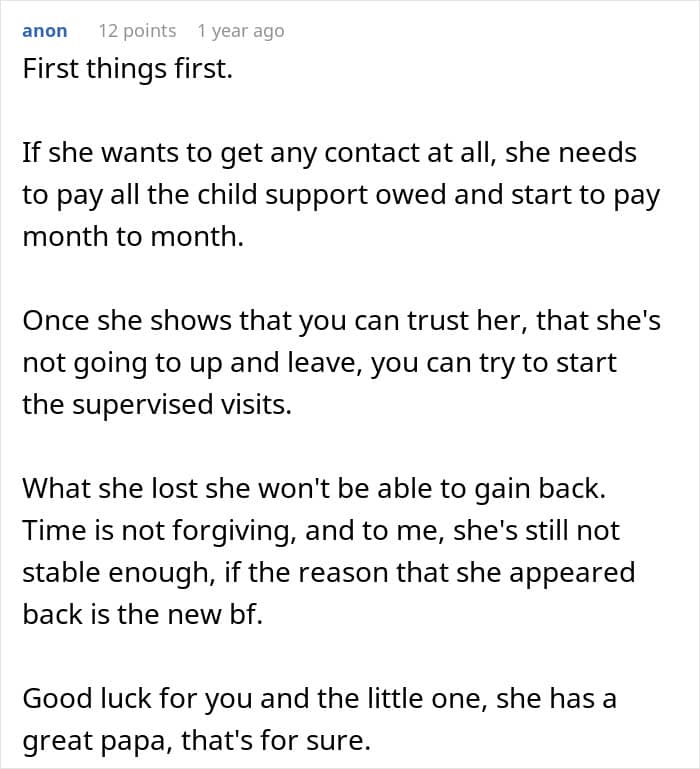

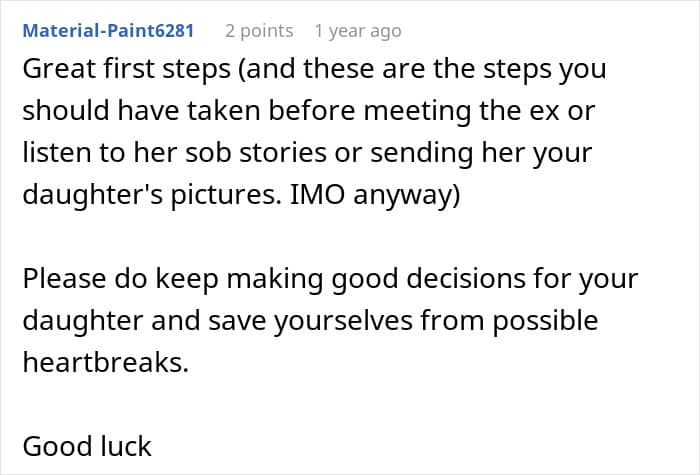

The man later shared a final update, offering a hopeful glimpse into the future
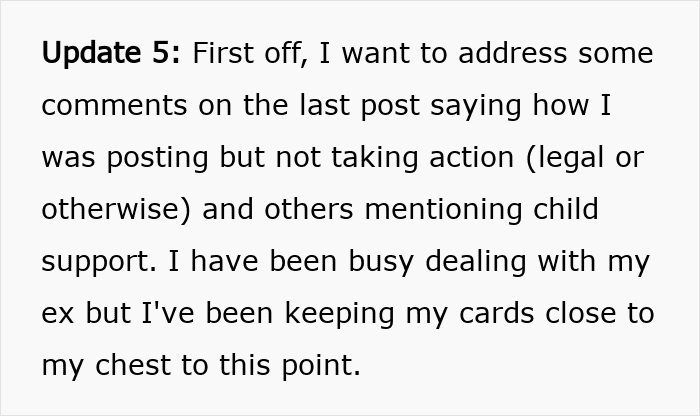
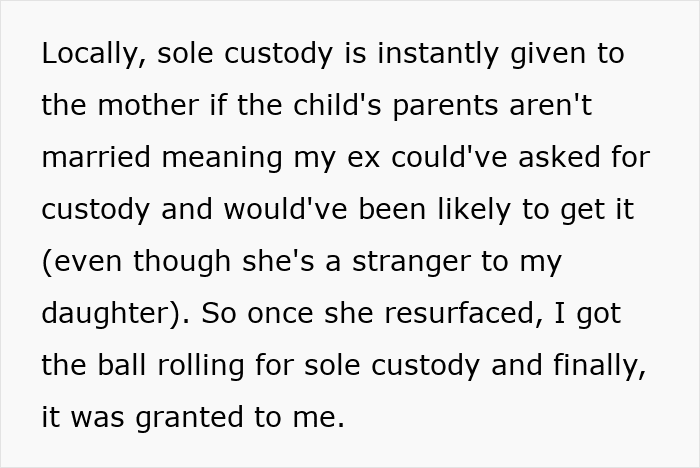
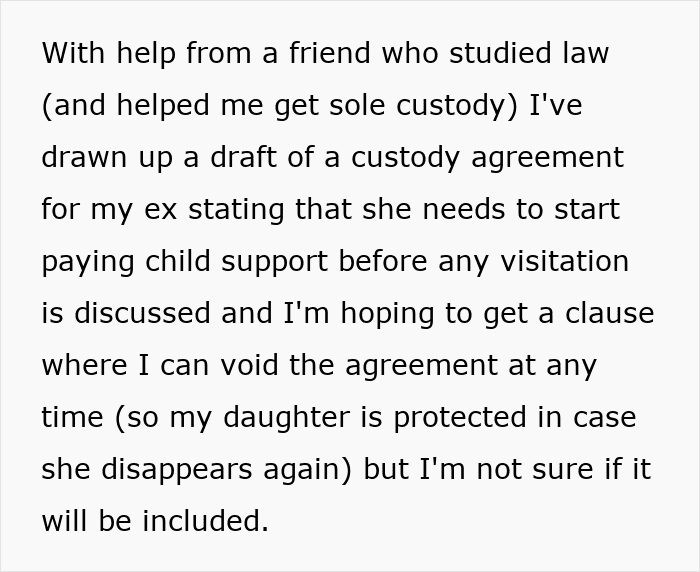
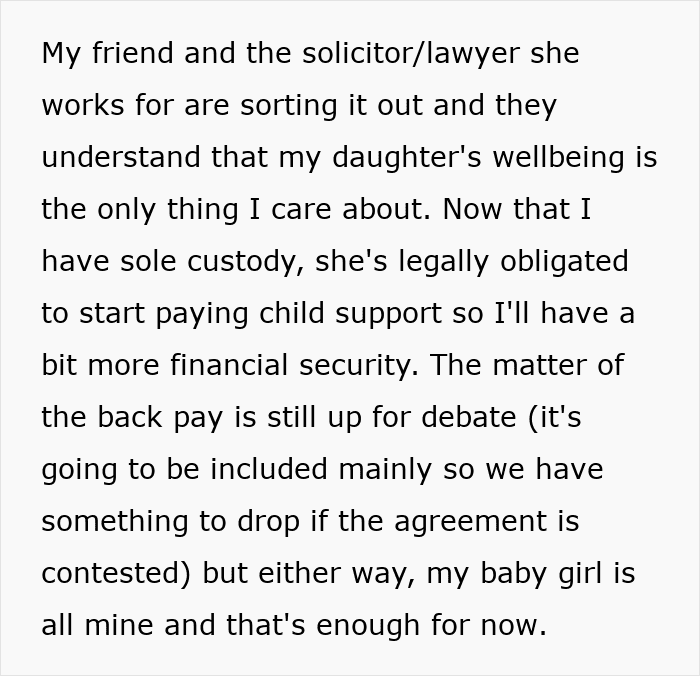
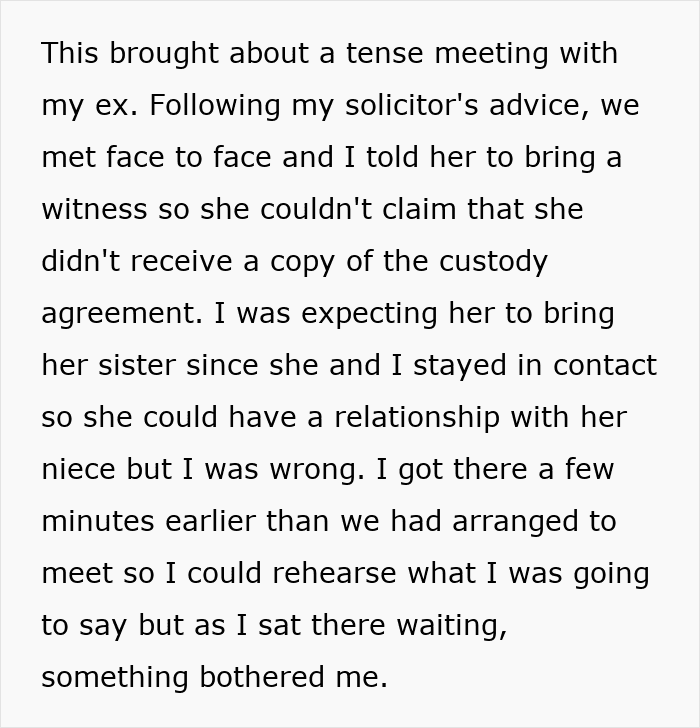


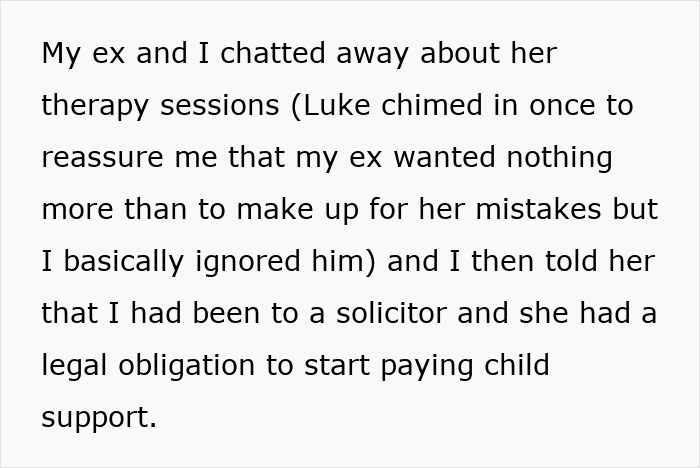
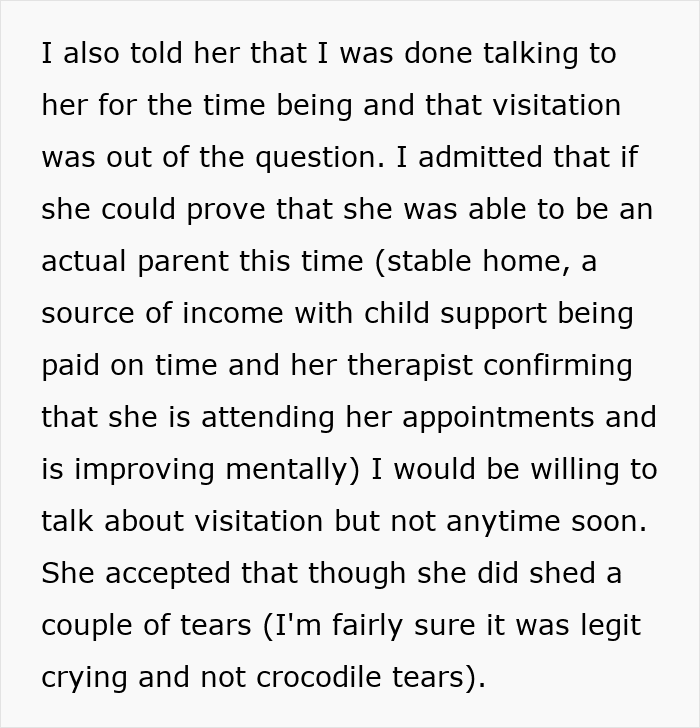
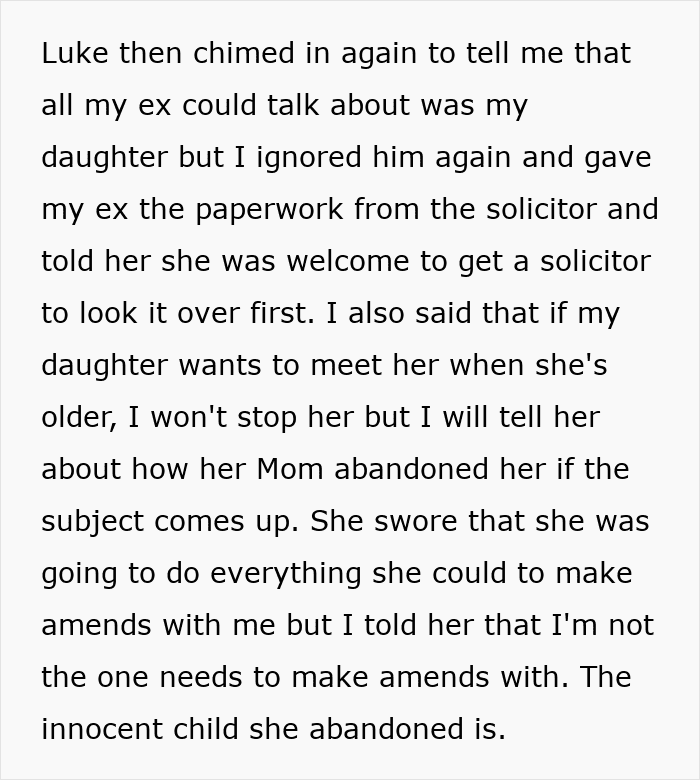
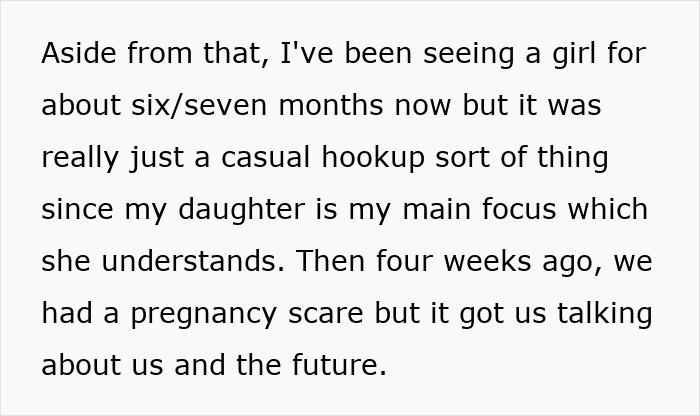
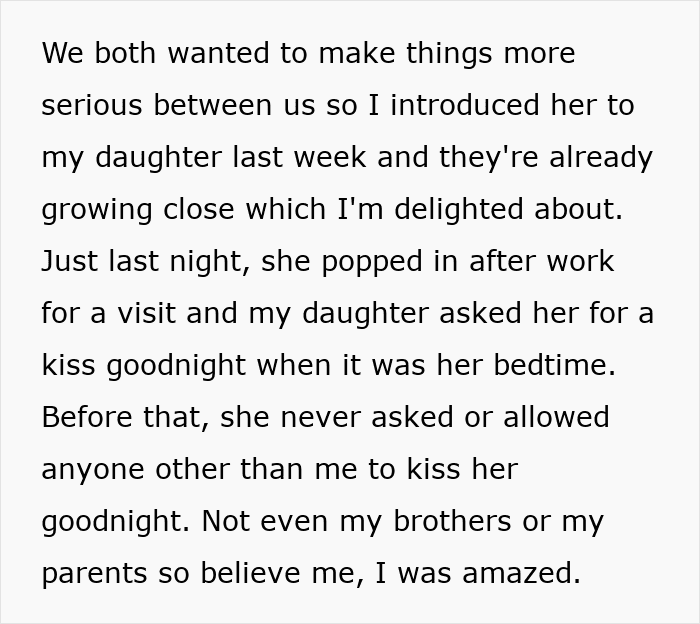
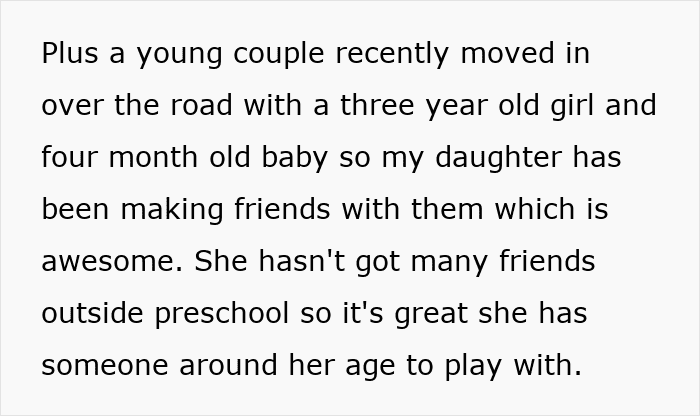
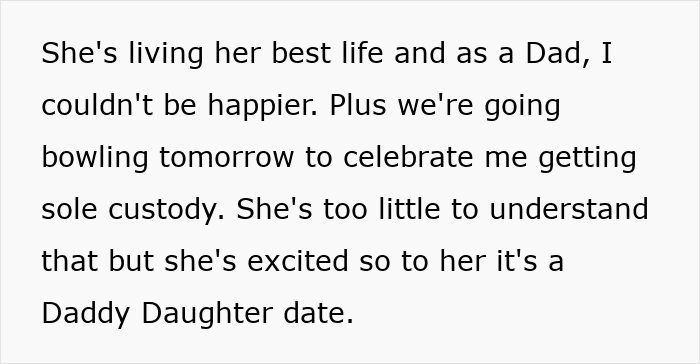
4